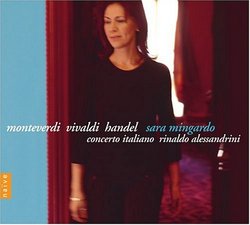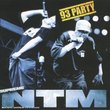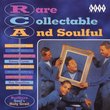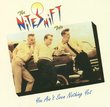| All Artists: Giacomo Carissimi, Pietro Francesco Cavalli, George Frideric Handel, Giovanni Legrenzi, Tarquinio Merula, Claudio Monteverdi, Giovanni Salvatore, Antonio Vivaldi, Rinaldo Alessandrini, Sara Mingardo Title: Monteverdi, Vivaldi, Handel Members Wishing: 1 Total Copies: 0 Label: Opus 111 Release Date: 7/20/2004 Genres: Pop, Classical Styles: Vocal Pop, Opera & Classical Vocal, Historical Periods, Baroque (c.1600-1750) Number of Discs: 1 SwapaCD Credits: 1 UPC: 709861303953 |
Search - Giacomo Carissimi, Pietro Francesco Cavalli, George Frideric Handel :: Monteverdi, Vivaldi, Handel
 | Giacomo Carissimi, Pietro Francesco Cavalli, George Frideric Handel Monteverdi, Vivaldi, Handel Genres: Pop, Classical
|
Larger Image |
CD DetailsSimilar CDs
|
CD Reviews'Tears, Sighs and Entreaties' J Scott Morrison | Middlebury VT, USA | 08/11/2004 (5 out of 5 stars) "This collection of arias, madrigals and cantatas from the (mostly) Italian baroque features the rich and haunting voice of Sara Mingardo, surely one of the best contraltos currently singing. The texts of most of these works are generally about lost, distant or unrequited love or about death - the 'tears, sighs and entreaties' of Vivaldi's 'Pianti, sospiri e dimandar mercede.' The unrelenting sadness and sighing may be a bit much to digest in one sitting, but taken in manageable bits, this CD is not only moving, but musically satisfying. Mingardo is given, not surprisingly, flexible and empathic support by Rinaldo Alessandrini and his Concerto Italiano. All but one of the works are by Italians; the exception is Handel's cantata 'Lungi da me pensier tiranno!' ('Leave me, tormenting thought!') which is, of course, set to an Italian text. All the works are effective, but particularly so is one previously unfamiliar to me (and the first selection on the disc), the 9-minute 'Hor ch'e tempo di morire' ('When the time comes to die, sleep, my son, do not cry') by Tarquinio Merula (ca. 1595-1665), a composer previously only a name to me. It is hauntingly set against two rocking minor chords that repeat ceaselessly for most of the length of the 'canzonetta spirituale sopra alla nanna,' a lullaby sung by the Virgin Mary to the Baby Jesus. The effect is hypnotizing. Equally effective is 'Deh, memoria, e che più chiedi?' ('Say, memory, what more do you want?') by Giacomo Carissimi (1605-1674) which contains some ravishing pianissimo singing by Mingardo. Also included are pieces by Giovanni Salvatore (1600-ca. 1668), Monteverdi ('Vorrei baciarti' [with assistance of mezzo Monica Bacelli] and 'Se i languidi miei cime'), Cavalli, Giovanni Legrenzi (1626-1690), and Handel (the aforementioned 'Pianti, sospiri e dimandar mercede,'). There is an exceedingly interesting booklet essay by Olivier Rouvière on the history of the contralto voice. Mingardo has recorded a great deal and has appeared all over the world, but seems not to have sung much in the U.S. (Santa Fe Opera and the Boston Symphony). That's a pity; she's a true artist. TT=71:40 Scott Morrison" Stellar Impassioned Contralto in Fine Early Music Program Ed Uyeshima | San Francisco, CA USA | 06/15/2005 (5 out of 5 stars) "Gender lines become increasingly irrelevant as the current crop of world-class Baroque interpreters stake their territory. Just as David Daniels redefines our expectations of the countertenor voice and what a delicately beautiful sound a man can generate, Sara Mingardo is doing the same for the contralto voice and displaying how powerfully dynamic a woman can sound. This 2004 release is quite an accomplished recording of 17th- and 18th-century arias and cantatas written for women and castrati. An intensely passionate singer especially as she explores a repertoire in her native Italian, Mingardo is anything but pious in her interpretations. Her impressive vocal and theatrical abilities are on full display in the opening, "Hor ch'è tempo di morire", a nine-minute lullaby by Tarquinio Merula, where the sighing, monotonously repetitive accompaniment acts as counterpoint to her expression of Mary's heartfelt sentiment for her son's well-being in both life and inevitable death. Throughout the program, she invokes a broad gamut of emotions and stills stays true to the Baroque fach. Although the disc is billed with the three most famous composers (Handel, Vivaldi and Monteverdi), I feel her decorous vocal production seems particularly well executed on the beautifully moving works by Carissimi ("Deh, memoria, e che più chiedi") and Legrenzi ("Costei ch'in mezzo al volto scritt'ha il mio cor"), which Mingardo seems to relish and on which she lavishes the full measure of her rich tone. The last section of the Vivaldi cantata, "Piani, sospiri e dimandar mercede" reveals her sharp technique and rhythmic control even more than the preceding Handel cantata, "Lungi da me pensier tiranno", a good but not great early piece from the master. Her duet with Monica Bacelli on the Monteverdi piece, "Se i languidi miei sguardi", provides an interesting contrast of styles as Bacelli provides the pure dulcet tones we tend to think of as typical in Baroque singing. Mingardo's voice may lack the feminine warmth of her alto colleague Stephanie Blythe, but it's still extremely listenable and quite an impressive instrument especially when intertwined with the five players of Concerto Italiano - an ensemble of two violins, a cello, a theorbo and a harpsichord - under the often imaginative musical direction of Rinaldo Alessandrini. This is a superb recording for early music fans." De profundis .... Giordano Bruno | Wherever I am, I am. | 01/25/2010 (5 out of 5 stars) "Nothing about the physical elegance of Sara Mingardo prepares a listener for the voice that emerges from her slender frame, the richest dusky chocolate contralto since Marilyn Horne, and with a good deal more sophisticated control! Suppose that a lark perched in a tree above you, opened its beak, and out gushed a cello sonata by Bach! Mingardo's voice is truly a wonder of nature, which she has cultivated with impeccable 'historically informed' vocal technique.
Likewise, nothing about the cover or title of this CD prepares a listener for the dramatic intensity of the music recorded here, all arias of despair and lamentation, music for the dark nightingale amid the somber cypresses of the baroque obsession with the beauty of death. A more perfect showcase for Mingardo's contralto could not be assembled, and I'm sure this was the intent: to unburden all of Music's griefs in a flowing cantilena of loveliness. That unprepossessing cover mentions only Monteverdi, Vivaldi, and Handel, but the program includes works by Cavalli, Carissimi, Giovanni Legrenzi, Giovanni Salvatore, and Tarquinio Merula, all active composers of the 17th and early 18th Centuries. The Merula 'canzonetta spirituale' - the first track on the CD - is a monody sung over a hypnotic continuo of two chords in a single triplet measure; the text is a 'lullaby' sung by Mary to the Baby Jesus, consoling her Son for the inevitable anguish of crucifixion. The origin of the text isn't specified in the program notes, but the mystically anguished Italian poem, 12 stanzas long, is forcefully translated in English. After the Merula, almost any operatic dirge about unrequited passion might be expected to sound melodramatic, and indeed that's the case. The texts of the cantatas and arias, from Salvatore to Vivaldi, scarcely match the passion of the music. But isn't that the case with all baroque opera? Such stilted classicism transfigured by such sensuous melody? Take a break after the Merula, I recommend, and then listen to the rest of the 'concert' as pure musical invention. The two Monteverdi madrigals, from il Settimo Libro, are especially well interpreted here, as one would expect from Concerto Italiano, whose recordings of the complete Monteverdi madrigals are impeccably fine. "Vorrei baciarte" is a duet; Mingardo is aided on it by mezzosoprano Monica Bacelli. The Handel cantata "Lungi da me pensier tiranno" was written in Rome in 1709. It is -- what else? -- an 'arcadian' lament at the mere suspicion of amorous infidelity on the part of that rascal Tirsi. As usual, nevertheless, the fiery passion of Handel's 'Italian' music renders the text sublime. The fickle shepherd gets his chance at rebuttal in the cantata by Giovanni Salvatore -- "Allor che Tirsi udia" -- as the singer laments the death of his true love , at the final cadence of which he expires. Again, it's the music that transforms melodrama to art. Except for some gratifying violin obbligatos, the instrumental contribution to this performance is limited to delicate, tasteful basso continuo on cello, theorbo, and harpsichord. This is Sara Mingardo's show all the way. I confess that I'm swept away by her. If you're not equally enraptured, perhaps you'd better stick with Patti Page. PS: Strike 'Page'; substitute Patti Smith, by Popular request." |

 Track Listings (23) - Disc #1
Track Listings (23) - Disc #1



